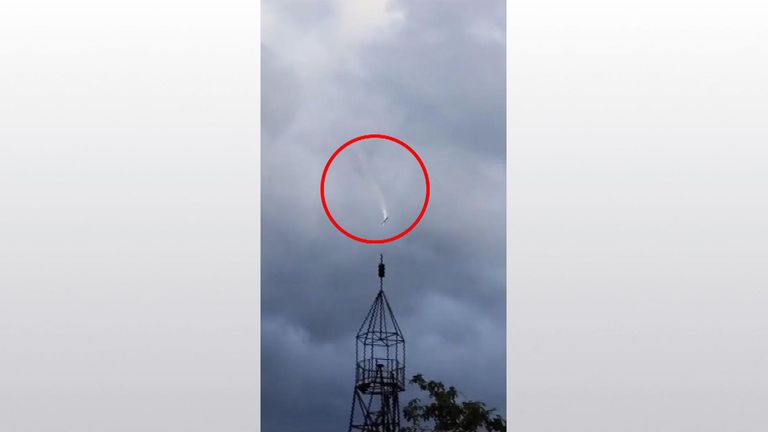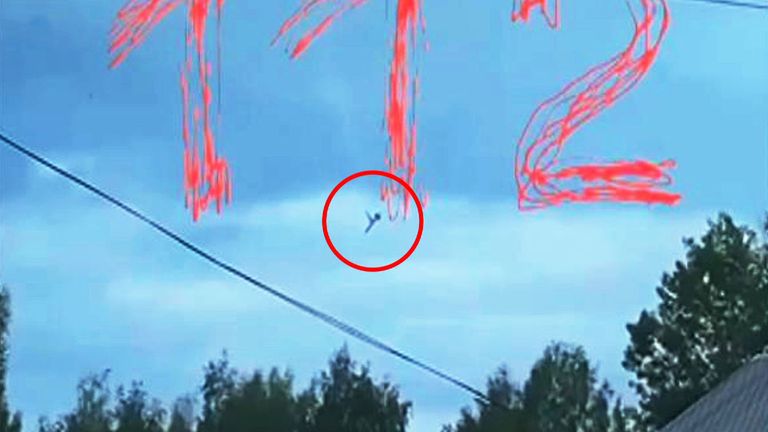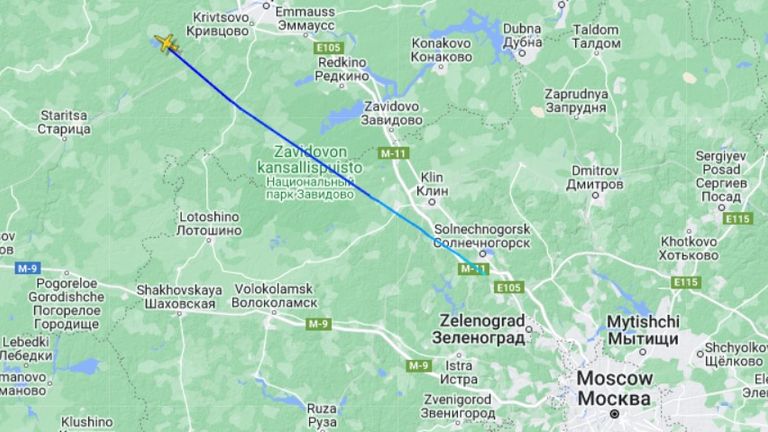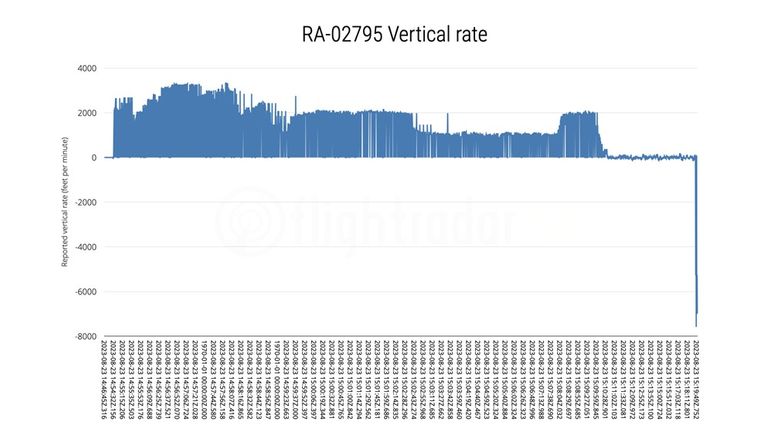Military analyst Sean Bell describes how key features of the video footage of the crash help explain what might have happened to the aircraft which apparently had mercenary boss Yevgeny Prigozhin on board, writes Sky News.
Was the private jet believed to be carrying Yevgeny Prigozhin brought down, and what exactly happened to it?
Several theories have been put forward as to what may have caused the plane to come hurtling to the ground as it travelled from Moscow to St Petersburg.
Using footage of the crash which has emerged online, military analyst and former pilot Sean Bell points to four key things it shows that may provide hints as to what likely happened to the aircraft.
1. A missile strike
One image shows a “swirl of cloud” which doesn’t sit comfortably against the rest, Bell says.
Drawing on his own experience of flying combat aircraft, he explains that if a surface-to-air missile hit the plane, “you would see that sort of vapour trail in the final stages of its approach”.
“Therefore, either that could be an explosion, or it could be a surface-to-air missile system,” he says.
However, US officials have said there is no information to suggest a surface-to-air missile was launched against the aircraft.
Preliminary US intelligence found the plane crash was intentionally caused by an explosion.
2. ‘Smoke’ as plane plummets
Bell highlights what appears to be a trail of smoke coming from the wreckage of the plane, around halfway into its descent.
He says this is “almost certainly not smoke” and is probably “fuel venting”.
“It’s a large quantity, that is a massive damage to the aircraft that’s caused that,” he adds.
3 and 4. Missing wing or tailplane in the air – and debris on the ground
Footage of the plane closer to the ground appears to show it without its wing or its tailplane, which could explain why it came down “vertically, not unlike a falling leaf”.
The fourth point Bell notes is that other pictures from the crash site show the tailplane “some distance” from the main part of the aircraft.
“Now, you put all of that together… there’s lots of reasons why that might have occurred, but that is not a natural accident,” Bell explains.
“That is a catastrophe that’s happened in the air… there were rumours that a case of wine [containing a bomb] was put on the aircraft at the last minute.
“The trouble with that theory is that generally speaking, [an explosion] inside an aircraft blows it out… whereas a surface-to-air missile system or an air-to-air missile system generally tries to seek out the juiciest, meatiest part of an aircraft.
“That would explain why it potentially could rip a wing off. And as soon as it did that, the fate of the aircraft was sealed.”
Is there a link to Putin?
Asked why – if he was behind the crash – Vladimir Putin didn’t target Prigozhin sooner after the short-lived mutiny two months ago, Bell said “systematically, President Putin has been dismembering” the Wagner boss’ business ever since.
“Tellingly, it was a couple of days ago where we saw the last video image of Yevgeny Prigozhin in a field, potentially in Africa, alone. He wasn’t surrounded by anybody else.
“All of a sudden, Prigozhin looks a slightly sad man alone and watching his empire dismembered. And at that stage, most military analysts were saying: ‘this is the end’.
“President Putin is acting as judge, jury and executioner and he is no more. That’s what we’re led to believe.”
What do we know about what happened?
The Embraer Legacy 600 plane was travelling from Moscow to St Petersburg on Wednesday.
Flight tracking website Flightradar24 says it first received data from the aircraft at 2.46pm local time.
The aircraft climbed to a cruising altitude of 28,000ft between 2.59pm and 3.11pm.
Nine minutes later, it had stopped transmitting data.
“Even though the aircraft was not transmitting position information, other data like altitude, speed, vertical rate, and autopilot settings were broadcast. It is this data that provides some insight into the final moments of the flight,” Flightradar24 said.
At 3.19pm, the aircraft descended briefly before climbing to a maximum altitude of 30,100ft.
It then descended back to roughly 27,500ft, before climbing and then levelling off again.
It then started to descend sharply, with the final data showing it at 19,725ft.







